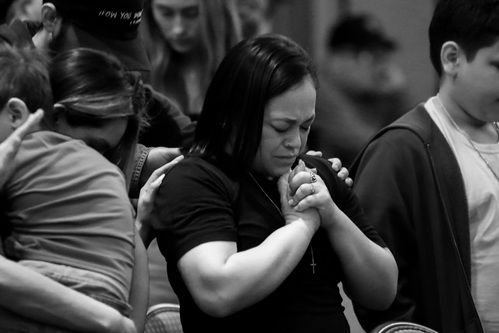Tuesday Devo

Scripture Reading:
Luke 8:1-3
Soon afterward Jesus began a tour of the nearby towns and villages, preaching and announcing the Good News about the Kingdom of God. He took his twelve disciples with him, 2 along with some women who had been cured of evil spirits and diseases. Among them were Mary Magdalene, from whom he had cast out seven demons; 3 Joanna, the wife of Chuza, Herod’s business manager; Susanna; and many others who were contributing from their own resources to support Jesus and his disciples.
Soon afterward Jesus began a tour of the nearby towns and villages, preaching and announcing the Good News about the Kingdom of God. He took his twelve disciples with him, 2 along with some women who had been cured of evil spirits and diseases. Among them were Mary Magdalene, from whom he had cast out seven demons; 3 Joanna, the wife of Chuza, Herod’s business manager; Susanna; and many others who were contributing from their own resources to support Jesus and his disciples.
Commentary from the ESV Study Bible:
8:1–3 Women Accompanying Jesus. Luke has more references to the role of women in Jesus’ ministry than any other Gospel. Here he mentions several by name. It is noteworthy that the women come from a wide array of social levels, from the highest levels of the social order in Herod’s palace, to a demon-possessed woman who would have been a social outcast. Cf. 23:49; 24:1–11; Acts 1:14.
8:2 Mary was called Magdalene because she was from Magdala (a city on the western shore of Galilee, identified with modern Migdal). Later writers in church history connected Mary Magdalene to the sinful woman of 7:37, calling her a former prostitute. There is no evidence for this in the biblical text or in early church history. This mistaken identification arose from erroneously combining the two separate accounts found in John 12:1–8 and Luke 7:36–50 with this passage in Luke 8. On the other hand, heterodox Gnostic writers from the late-second century and afterward promoted their own interpretation of Mary (along with other minor NT figures such as Thomas, Philip, and Judas), considering her a special possessor of secret knowledge from the Savior. Contrary to various popular media accounts, no ancient source (whether orthodox or heterodox) says that Mary was married to Jesus, let alone had a son with him. In fact, there is no source anywhere that says that Jesus was married to anyone. The NT simply informs readers that Jesus healed her of demonic possession, and that she gratefully followed him to the foot of the cross and the empty tomb (Matt. 27:56, 61; 28:1; Mark 15:40, 47; 16:1; Luke 24:10). Seven demons reveals the greatness of her healing (cf. 11:26).
8:3 Both the mention of Joanna, wife of Herod’s household manager, and the report that these women provided for them out of their means indicate that although Jesus’ ministry was directed primarily to the “poor” (4:18), some of the wealthy and powerful supported and welcomed it. The phrase many others and the relative pronoun who are both feminine in Greek, referring to women who supported Jesus and his disciples.
8:2 Mary was called Magdalene because she was from Magdala (a city on the western shore of Galilee, identified with modern Migdal). Later writers in church history connected Mary Magdalene to the sinful woman of 7:37, calling her a former prostitute. There is no evidence for this in the biblical text or in early church history. This mistaken identification arose from erroneously combining the two separate accounts found in John 12:1–8 and Luke 7:36–50 with this passage in Luke 8. On the other hand, heterodox Gnostic writers from the late-second century and afterward promoted their own interpretation of Mary (along with other minor NT figures such as Thomas, Philip, and Judas), considering her a special possessor of secret knowledge from the Savior. Contrary to various popular media accounts, no ancient source (whether orthodox or heterodox) says that Mary was married to Jesus, let alone had a son with him. In fact, there is no source anywhere that says that Jesus was married to anyone. The NT simply informs readers that Jesus healed her of demonic possession, and that she gratefully followed him to the foot of the cross and the empty tomb (Matt. 27:56, 61; 28:1; Mark 15:40, 47; 16:1; Luke 24:10). Seven demons reveals the greatness of her healing (cf. 11:26).
8:3 Both the mention of Joanna, wife of Herod’s household manager, and the report that these women provided for them out of their means indicate that although Jesus’ ministry was directed primarily to the “poor” (4:18), some of the wealthy and powerful supported and welcomed it. The phrase many others and the relative pronoun who are both feminine in Greek, referring to women who supported Jesus and his disciples.
Study Questions:
- The immoral woman at the end of Luke 7 uses her expensive perfume (one year's salary), her eyes and her hair as instruments of worship. The ladies in chapter 8 that followed Jesus gave to the ministry of Jesus out of their own pockets. Those who truly enter into the community of believers are not just spectators to ministry. Rather, they use their giftings and resources in service to Jesus. Can you truly say you are a part of a community of believers? Or or you just a spectator?
- Those who have been forgiven much GIVE much. Some of us give little of ourselves because we think we've been forgiven little. Romans 12, Paul tells us we should offer our lives a living sacrifices. 2 Corinthians 5 says that we no longer live for ourselves but for Jesus. When you evaluate your own life, how generous are you with your time? Your money? Your heart? Your talents? Do you live solely for Jesus, or for yourself? For the advancement of the Gospel or for your own name? In which area do you tend to be the least generous?
Pray:
- That you would be a contributing member of a community of believers.
- That you would give much because you've been forgiven much.
This Week's City 7:
Try to commit to memory!
1. Who is Jesus? I believe Jesus is God because Jesus said He is God and proved it by rising from the dead and appearing to His disciples, His brother James, 500 others at one time and Paul.
(Mark 3:21; John 8:58, 10:30-33, 14:9-11; Acts 9:1-6; 1 Corinthians 15:3-8; Colossians 1:15-20; Hebrews 1:2-3; James 1:1)
(Mark 3:21; John 8:58, 10:30-33, 14:9-11; Acts 9:1-6; 1 Corinthians 15:3-8; Colossians 1:15-20; Hebrews 1:2-3; James 1:1)

No Comments